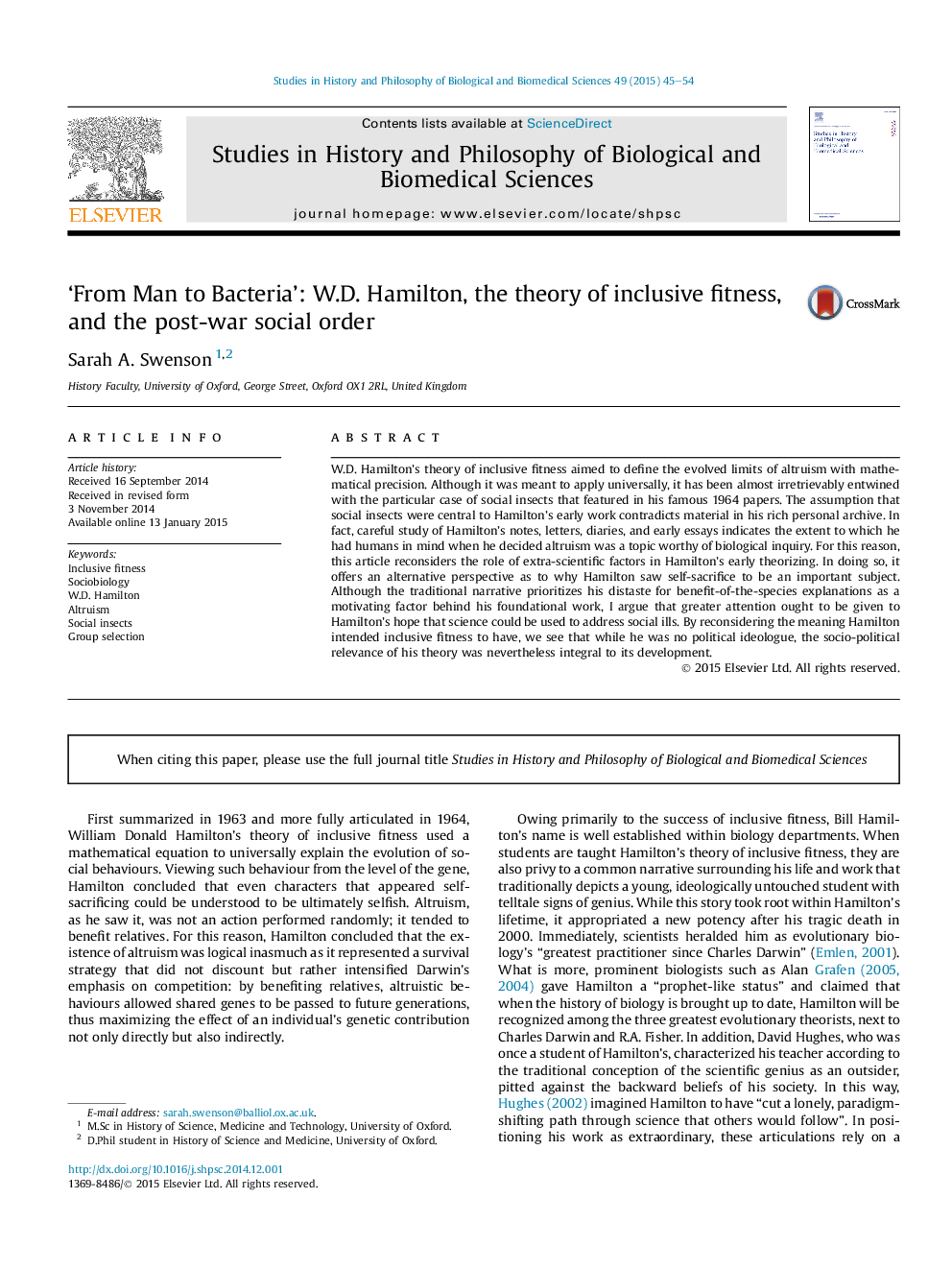| Article ID | Journal | Published Year | Pages | File Type |
|---|---|---|---|---|
| 1162196 | Studies in History and Philosophy of Science Part C: Studies in History and Philosophy of Biological and Biomedical Sciences | 2015 | 10 Pages |
•W.D. Hamilton's youth was marked by a concern for the future of the human species.•He believed the teachings of Christianity and Marxism contradicted natural ‘truth’.•He aimed to produce a universal theory that would explain even human sociability.•His choice of subject was relevant to his interpretation of a chaotic human world.•Several early readers recognized the socio-political relevance of inclusive fitness.
W.D. Hamilton's theory of inclusive fitness aimed to define the evolved limits of altruism with mathematical precision. Although it was meant to apply universally, it has been almost irretrievably entwined with the particular case of social insects that featured in his famous 1964 papers. The assumption that social insects were central to Hamilton's early work contradicts material in his rich personal archive. In fact, careful study of Hamilton's notes, letters, diaries, and early essays indicates the extent to which he had humans in mind when he decided altruism was a topic worthy of biological inquiry. For this reason, this article reconsiders the role of extra-scientific factors in Hamilton's early theorizing. In doing so, it offers an alternative perspective as to why Hamilton saw self-sacrifice to be an important subject. Although the traditional narrative prioritizes his distaste for benefit-of-the-species explanations as a motivating factor behind his foundational work, I argue that greater attention ought to be given to Hamilton's hope that science could be used to address social ills. By reconsidering the meaning Hamilton intended inclusive fitness to have, we see that while he was no political ideologue, the socio-political relevance of his theory was nevertheless integral to its development.
